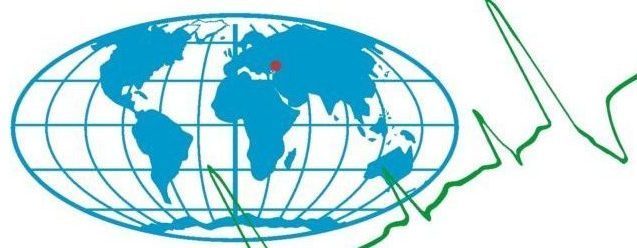A.N. Grekov, N.A. Grekov, E.N. Sychov
Institute of Natural and Technical Systems, RF, Sevastopol, Lenin St, 28
E-mail: oceanmhi@ya.ru
DOI: 10.33075/2220-5861-2018-3-29-36
10.33075/2220-5861-2018-3-29-36
UDC 551.46.08
Abstract:
The work is devoted to studies of the character of interdependence of sound speed and marine water salinity. It should be noted that salinity is one of parameters of marine water and to measure them in situ is not possible by now. During last decades for indirect determination (measuring) marine water salinity they widely use comfortable for automatization and having high sensitivity method for determination of salinity by the way of measuring relative electric conductivity with consideration of temperature and pressure. But this method has known considerable and impossible to be taken away shortcomings, that is why they do not stop trying to find and implement other (alternative methods for indirect measuring salinity of marine water, in particular according to the data of measurements of sound speed or indices of refraction.
At present time due to considerable progress in making higher accuracy of sound speed measuring (SVP) profilographs there appeared possibilities for using alternative method of the salinity indirect determination (measurement) according to sound speed measurements in situ. Here as methodics for indirect measuring the salinity one can use equation of marine water condition in one of two types, of which one fits as for sound speed с = fс(S, Т, Р) direct dependence (1), the other fits as for salinity S = fS(c, Т, Р) reverse dependence (2). Here salinity can be used in a form of either practical (SР) or absolute salinity (SА) salinity. Equations of the both types (1) and (2) are approximative and have as a rule polynomial form.
The studies under this work have shown that polynomial form fits well for approximation of the direct functional dependence of the sound speed on salinity (1) and can be used without limitation at wide range of the temperature and pressure magnitudes. At the same time as a result of the analysis we stated that polynomial form of approximation does not quite fit for approximation of the reverse functional dependence of salinity on the sound speed (2) at wide range of temperature and pressure magnitudes, except only small region of of low temperature and pressure. This result is quite important, as on its base considerable conclusion can be done: working out polynomial equations in the form (2), fit for salinity as some researchers do is purposeless due to not high accuracy of such equations.
It is reasonable to work out and use polynomial equations in the form (1), fit for sound speed as more correct as a methodics for indirect determination (measuring) of salinity.
The needed salinity magnitudes according to the known sound speed magnitudes can be easily determined by solution of equations in the form (1) not fitting salinity, with the help of the known mathematical methods.
The international thermodynamic equation of seawater – 2010 (TEOS-10) was used under studies.
Keywords: marine water, sound velocity, salinity, water condition equation TEOS-10.
LIST OF REFERENCES
- Chen C.-T., Millero F.J. Precise equation of state of seawater for oceanic ranges of salinity, temperature and pressure. Deep-Sea Res. 1977. V. 24: 365–369. doi:10.1016/0146-6291(77)96000-3
- Allen J.T., Keen P.W. et al. A new salinity equation for sound speed instruments. Limnology and oceanography: Methods. 06, 2017. P. 1–11. doi: 10.1002/lom3.10203
- IOC, SCOR and IAPSO, 2010: The international thermodynamic equation of seawater – 2010: Calculation and use of thermodynamic properties. Intergovernmental Oceanographic Commission, Manuals and Guides No. 56, UNESCO (English), 196 pp. (Available from http://www.TEOS-10.org).
- Grekov A. N., Grekov N. A., Sychev E. N. Estimation of uncertainty of measurements of practical salinity of sea water in Oceanographic research // Monitoring systems of environment. Sevastopol: INTS. 2018. Issue 11 (31). Pp. 13-22.
![]()
